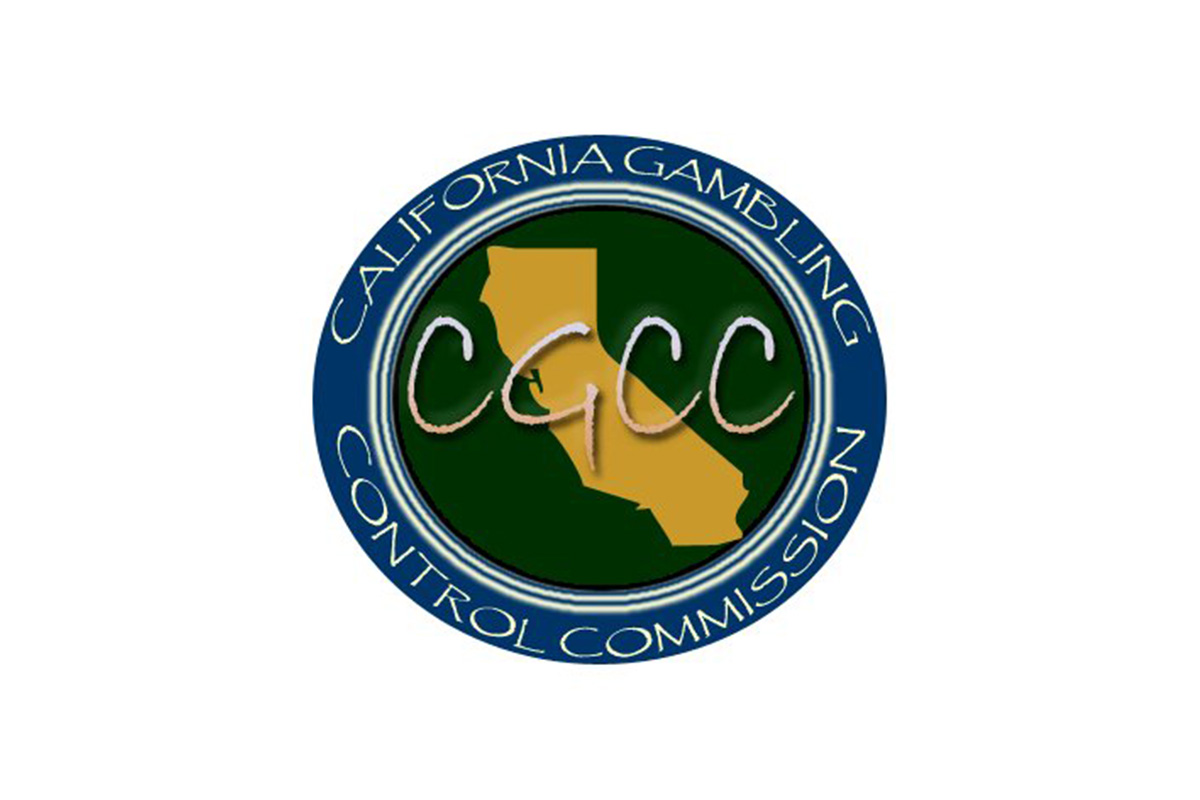

Compliance Updates
Sweden’s government proposes increased gambling tax
Sweden’s government has today Wednesday proposed an increase in the gambling tax, from 18 percent of GGR to 22 percent of GGR. The reason, according to the government, is that the gambling market should have stabilized since the reregulation in 2019 and that channelization is said to be high.
BOS Secretary General Gustaf Hoffstedt comments:
The announcement from the government is deeply disappointing, above all because it shows that the government does not understand or has taken to heart what kind of market it is set to govern. Even less has the government understood the vulnerable position that market is in.
We were recently able to show that channelization in the Swedish gambling market is 77 percent. Some gambling verticals, including online casino, are as low as 72 percent. The trend is also declining, in other words the channeling decreases over time.
We are already far from the state’s goal of at least 90 percent channelization, and if this tax increase is approved by the Riksdag, we will soon be down to the channelization we had before Sweden reregulated its gambling market in 2019. A reregulation that took place because Sweden had such a low channelization at the time.
Sweden’s government must perform much better than this. There is still time to withdraw the proposal, concludes Gustaf Hoffstedt.
The government’s proposal can be found in Swedish on pages 289-290 here: https://www.regeringen.se/contentassets/e1afccd2ec7e42f6af3b651091df139c/forslag-till-statens-budget-for-2024-finansplan-och-skattefragor-kapitel-1-12- appendices-1-9.pdf
Below a Google translation of the same text:
Increased gaming tax
The government’s assessment: The excise tax on gambling should be increased from 18 to 22 percent of the balance for each tax period.
The upcoming proposal should enter into force on 1 July 2024.
The reasons for the government’s assessment: One of the purposes of today’s gambling regulation is to protect the surplus from gambling activities for the general public by contributing to the financing of government activities. With the exception of gambling that is reserved for public benefit purposes, licensed gambling is taxed according to the Act (2018:1139) on tax on gambling. According to this law, excise duty is levied at 18 percent of the balance for each tax period. The balance is made up of the difference between the total stakes and the total payouts. A taxation period consists of one calendar month.
An increase in the tax on gambling should be well balanced to avoid a major negative impact on the proportion of gambling that takes place at the companies that have a license for gambling in Sweden. From the bill A reregulated gambling market it appears that a tax of just over 20 percent can be considered compatible with an aim to achieve a channelization rate of at least 90 percent (prop. 2017/18:220 p. 258). In that bill, however, a lower tax level was proposed for precautionary reasons. The current tax rate of 18 percent has applied since the Swedish gambling market was reregulated in 2019. The gambling market has since stabilized and channelization has increased significantly. In addition, measures have been taken to exclude unlicensed gambling from the Swedish market, which came into effect 1 July 2023 (prop. 2022/23:33). The reasons for caution when setting the tax level should therefore not be as strong now as during the re-regulation. An increase from 18 to 22 percent is judged to be at a suitable level to strengthen the financing of government activities, without it leading to too great an impact on the companies and the size of the tax base. The excise tax on gambling should therefore be increased from 18 to 22 percent.
The upcoming proposal should enter into force on 1 July 2024. The government intends to return to the Riksdag in the spring of 2024 with a proposal according to the above. The upcoming proposal is estimated to increase tax revenue by SEK 0.27 billion in 2024 (half-year effect) and thereafter by SEK 0.54 billion per year.
Compliance Updates
Ukraine’s PlayCity Begins Issuing Licenses to Gambling Operators

The Cabinet of Ministers of Ukraine has adopted a resolution on licensing conditions in the gambling sector, which allows the state agency PlayCity to begin issuing licenses to gambling organisers and confirming previously issued ones.
“As a result, this will generate almost UAH 50 million (1.028.956,00 Euro) in additional revenues to the state budget from license fees in the near future,” PlayCity reported on Telegram.
It is noted that to obtain a license, impeccable business reputation, lack of ties with the aggressor state and implementation of all necessary mechanisms for responsible gaming are required.
PlayCity clarified that such requirements apply to both those who are only applying for a license and current licensees. Current licensees have two months to submit documents to PlayCity on compliance with the requirements.
The message emphasises that if the requirements are not met, sanctions in the form of fines or termination of the license may be applied to the organisers of gambling.
“The state will direct additional budget revenues to strengthen defense capabilities, in particular, to purchase drones for the Defense Forces,” PlayCity added.
The post Ukraine’s PlayCity Begins Issuing Licenses to Gambling Operators appeared first on European Gaming Industry News.
Compliance Updates
Football Season Kicks Off: Arizona Department of Gaming Warns of Gambling Scams and Highlights Consumer Protection Tools

September is Responsible Gaming Education Month, and the Department is reminding fans to play it safe with tools like Check Your Bet, self-exclusion, and the 1-800-NEXT-STEP helpline.
With the football season underway, the Arizona Department of Gaming (“the Department”) is warning Arizonans about the growing risks of unlicensed online casinos and sportsbooks. September also marks Responsible Gaming Education Month, making this an important time to remind fans that if you choose to play, play it safe by choosing a regulated operator.
Regulated gaming offers important consumer protections, helping ensure fair play, data security, accountability, and a safer overall experience. The Department has seen an increase in consumer complaints about unlicensed gambling operations in recent months, a trend expected to intensify as football season kicks off and the busiest event wagering period of the year begins. Common issues include unfair or misleading terms, difficulty withdrawing winnings, and accounts being frozen without explanation, often after a withdrawal request.
“Responsible Gaming Education Month is the perfect time to remind Arizonans that while legal, regulated gaming options are available to all Arizonans ages 21+, there are also deceptive operators eager to take advantage of fans during football season,” said Jackie Johnson, Director of the Arizona Department of Gaming. “Unregulated platforms lack responsible gaming safeguards, age verification, and offer no consumer protections, which puts Arizonans at risk. That’s why the Department is promoting resources to give every Arizonan the tools they need to make informed choices and play responsibly.”
To help protect Arizonans, the Department has launched a new Responsible Gaming website and is spotlighting three key resources this month:
- Check Your Bet– If you choose to participate in gaming, opting for legal, regulated operators is the best way to protect yourself. Playing responsibly means knowing your operator is licensed and that you meet Arizona’s legal gaming age of 21+. This online resource helps Arizonans confirm they’re using a legal site, which helps protect against fraud, identity theft, and other risks.
- Self-Exclusion Program– A free, confidential program that allows people to voluntarily limit their access to Arizona’s regulated gaming. The statewide self-exclusion program was established in 2004 for casinos and expanded in 2021 to include retail sportsbooks, event wagering platforms, and fantasy sports platforms. More than 550 Arizonans enrolled in the last fiscal year, and over 11,000 have chosen this option since the program began.
- 1-800-NEXT-STEP – A confidential, 24/7 helpline for anyone seeking support right now, whether for themselves or someone they care about. The helpline connects Arizonans with caring professionals who can provide immediate assistance, low and no-cost treatment referrals, and financial counseling.
These resources, along with more tips and tools, are available at the Department’s new webpage: gaming.az.gov/ResponsibleGaming.
Top 5 Signs of an Unlicensed Gambling Site
The Department urges Arizonans to be cautious and watch for these warning signs that a site or app may be fraudulent or unlicensed:
- No Responsible Gaming Protections – Licensed operators are required to provide responsible gaming tools, including age verification to ensure no one under the age of 21 can play, deposit limits, time limits, self-exclusion options, and access to the 1-800-NEXT-STEP helpline. If you don’t see these tools, it’s a red flag.
- Too-Good-to-Be-True Offers – Promises of “guaranteed wins,” oversized bonuses, or “risk-free” bets are common scam tactics.
- Trouble Getting Paid and No Dispute Resolution – Unregulated sites often delay or deny withdrawals, with little to no process for resolving disputes.
- Unusual Payment Methods – Sites that only accept cryptocurrency, wire transfers, or gift cards instead of secure, standard payment options are a major warning sign.
- Copycat Branding or Poor Site Quality – Some fraudulent sites impersonate legitimate Arizona casinos or sportsbooks, using misspellings, broken links, or look-alike names to trick players into downloading their app or visiting their site.
“Licensed operators in Arizona are required to provide responsible gaming safeguards. When people play on unregulated sites, those protections are missing and people are more vulnerable,” said Elise Mikkelson, Director of the Division of Problem Gambling. “That’s why Arizona’s helpline exists: to ensure every Arizonan has access to the support they need. With more than 11,000 Arizonans choosing to enroll in the state’s self-exclusion program since it began, it’s clear that no one is alone in taking steps to protect themselves. And if you or someone you know is struggling, help is always available.”
How to Report Suspicious Gambling Activity, Fraud, or Identity Theft:
Arizonans who believe they may have encountered an unlicensed or suspicious gambling site are encouraged to report it directly to the Arizona Department of Gaming. Reports help the Department investigate and take action to protect consumers statewide. If you find a website, app, or business that claims to offer legal gaming in Arizona but does not appear to be licensed or authorized by the Department, follow these steps:
- Document the website URL, app, business name, and any promotional materialsassociated with the platform or operator.
- Report itto ADG at [email protected] and the Arizona Attorney General’s Office Consumer Information and Complaints Unit at (602) 542-5763 or by visiting azag.gov/consumer.
- Cease activity on the platform and monitor financial accounts for unauthorized transactions.
- If you suspect identity theft, report it to the Federal Trade Commission (“FTC”): for help in English, go to IdentityTheft.gov, and for help in Spanish, go to RobodeIdentidad.gov.
The Department takes complaints about all illegal gambling seriously. Reports can be made anonymously.
The post Football Season Kicks Off: Arizona Department of Gaming Warns of Gambling Scams and Highlights Consumer Protection Tools appeared first on Gaming and Gambling Industry in the Americas.
California
California Gambling Control Commission Issues New Precedential Decision on Licensing Requirements

The California Gambling Control Commission has issued a new Precedential Decision that addresses licensure requirements for funding sources of Third-Party Providers of Proposition Player Services (TPPPS).
The decision, formally titled Precedential Decision 2025-01, was adopted on August 21, 2025, and is now available on the Commission’s Precedential Decisions page
along with all prior precedential rulings.
This latest decision provides further clarity on licensing obligations and regulatory expectations for individuals and entities involved in funding TPPPS operations—a key aspect of maintaining integrity and oversight in California’s regulated gambling industry.
Stakeholders and members of the public can stay informed by subscribing to receive notifications when new Precedential Decisions are under consideration or adopted. The Precedential Decisions Subscription Signup Form, along with other subscription options for Commission meeting agendas, newsletters, and rulemaking updates, is available on the Commission’s website.
For questions or additional information, contact the Commission at (916) 263-0700 or via email at [email protected]
.
The post California Gambling Control Commission Issues New Precedential Decision on Licensing Requirements appeared first on Gaming and Gambling Industry in the Americas.
-

 gaming3 years ago
gaming3 years agoODIN by 4Players: Immersive, state-of-the-art in-game audio launches into the next generation of gaming
-
EEG iGaming Directory9 years ago
iSoftBet continues to grow with new release Forest Mania
-
News8 years ago
Softbroke collaborates with Asia Live Tech for the expansion of the service line in the igaming market
-
News7 years ago
Super Bowl LIII: NFL Fans Can Bet on the #1 Sportsbook Review Site Betting-Super-Bowl.com, Providing Free Unbiased and Trusted News, Picks and Predictions
-
iGaming Industry8 years ago
Rick Meitzler appointed to the Indian Gaming Magazine Advisory Board for 2018
-
News7 years ago
REVEALED: Top eSports players set to earn $3.2 million in 2019
-
iGaming Industry8 years ago
French Senator raises Loot Boxes to France’s Gambling Regulator
-
News7 years ago
Exclusive Interview with Miklos Handa (Founder of the email marketing solutions, “MailMike.net”), speaker at Vienna International Gaming Expo 2018














